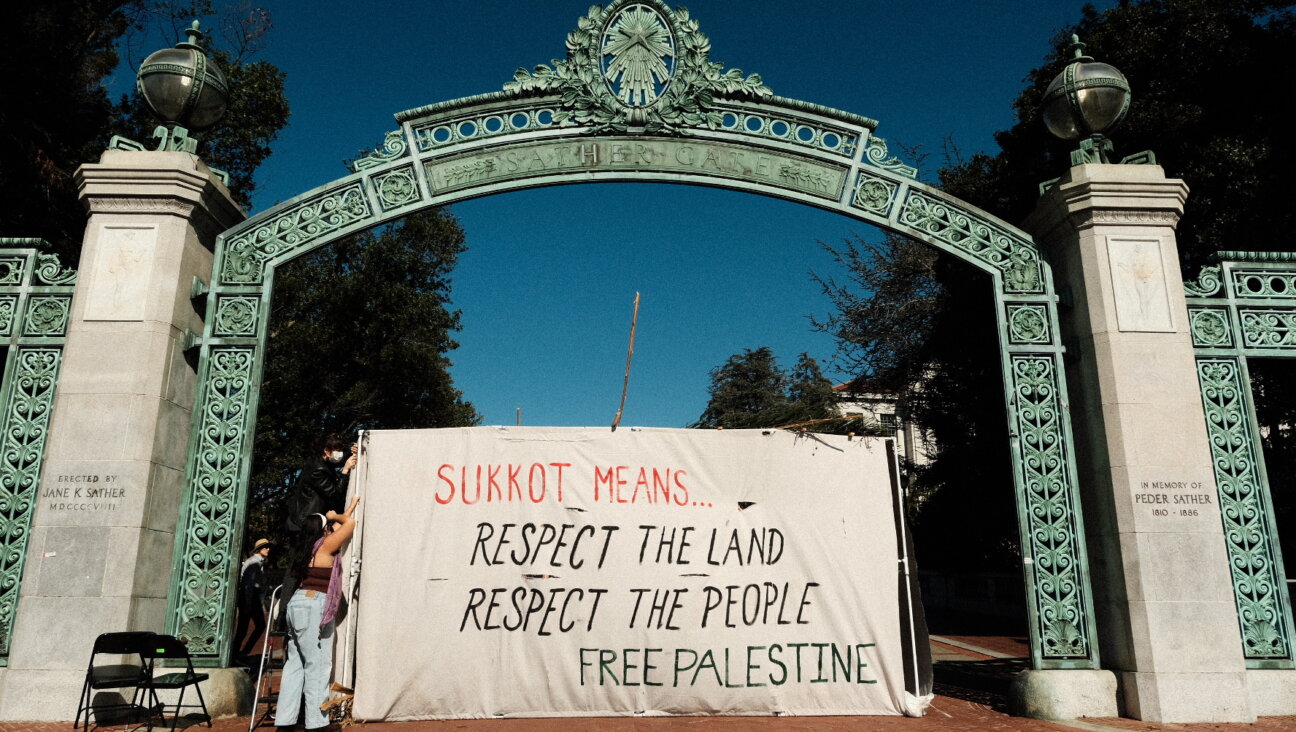Indictments Hit Prominent Crown Heights Family
Two members of an influential family in Brooklyn’s Chabad-Lubavitch community were arrested this week after being indicted by a federal grand jury.
The indictment from the U.S. attorney in Philadelphia charges Moshe Rubashkin with leaving hazardous waste at a textile plant in Allentown, Pa. Rubashkin is a communal leader in the Crown Heights neighborhood of Brooklyn, the stronghold of the Chabad-Lubavitch sect of Orthodox Judaism.
Rubashkin’s son, Sholom, was also charged with misleading an investigation into a fire at the plant. The younger Rubashkin ran the real estate branch of the family’s business under the alias Sam Sternburg.
Nathan Lewin, a lawyer who is representing the family in the case, did not return calls seeking comment. The indictments were first reported on the blog FailedMessiah.
The Rubashkin family is best known for owning AgriProcessors, the nation’s largest kosher slaughterhouse. But the current indictments shed light on the family’s much broader business holdings and what is now a growing list of legal problems that has dogged the family in each of its endeavors.
The family got its start in America when the patriarch, Aaron Rubashkin, came over from Russia in 1945. Once in Brooklyn, Rubashkin, set up a local butcher shop in Brooklyn. In the ’80s, the family began expanding its business interests aggressively. Two of Rubashkin’s sons set up the AgriProcessors slaughterhouse in Postville, Iowa. The plant, which produces meat under the Aaron’s Best label, has been under scrutiny due to complaints about the way it has treated the animals that are slaughtered there and the people who work there. The company has also had run-ins with the Environmental Protection Agency, which brought forward the charges in the new textile mill case.
In addition to the kosher meat company, the family has long had holdings in the textile industry, including the one in Allentown and another in Cherry Hill, N.J., where family members have faced reprimands from the National Labor Relations Board.
Moshe Rubashkin, 50, has overseen the textile mills but kept his base of operations in Brooklyn, where he is currently chairman of the Crown Heights Jewish Community Council. The council receives public funding to promote social welfare in the neighborhood.
Rubashkin won his seat on the Crown Heights council shortly after being released from prison for previous charges relating to Montex, the now defunct textile company based in the Allentown mill. He had served 15 months for writing bad checks from Montex, which specialized in bleaching and dyeing textiles. A year before that, he had been fined for failing to secure workers’ compensation for Montex employees.
The current charges stem from events in 2001, when Rubashkin allegedly left drums of hazardous waste in the abandoned Allentown mill after closing down production at the site. According to the indictment, fires that broke out in the factory in 2005 were exacerbated by the chemicals stored inside. The EPA asked Rubashkin to clean up the site, but he allegedly did not comply, leading the agency to do the work.
In the indictment, the EPA claims that when it attempted to charge the party responsible for costs incurred in cleaning out the mill, it discovered that the property had been held by a confusing tangle of real estate companies with no clear owner. Sholom Rubashkin, 28, ran the real estate branch of the family business under his alias and informed the EPA that he had no connection to the mill site at the time of the fires. The indictment alleges that Sholom “knowingly and willfully made materially false, fictitious, and fraudulent statements.”
Both men could face a maximum of five years in prison and a $250,000 fine.
It is not clear what effect the charges will have on Moshe Rubashkin’s leadership position in the Crown Heights community. A person who picked up the phone at the Crown Heights Jewish Community Council hung up when asked to comment.
A message from our Publisher & CEO Rachel Fishman Feddersen

I hope you appreciated this article. Before you go, I’d like to ask you to please support the Forward’s award-winning, nonprofit journalism so that we can be prepared for whatever news 2025 brings.
At a time when other newsrooms are closing or cutting back, the Forward has removed its paywall and invested additional resources to report on the ground from Israel and around the U.S. on the impact of the war, rising antisemitism and polarized discourse.
Readers like you make it all possible. Support our work by becoming a Forward Member and connect with our journalism and your community.
— Rachel Fishman Feddersen, Publisher and CEO























